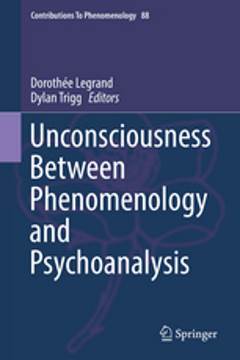This document is unfortunately not available for download at the moment.

Dorothée Legrand, Dylan Trigg (2017) Unconsciousness between phenomenology and psychoanalysis, Dordrecht, Springer.
Husserl's layered concept of the human person
conscious and unconscious
Dermot Moran
pp. 3-23
Not implemented yet !


